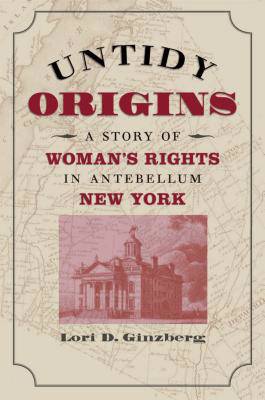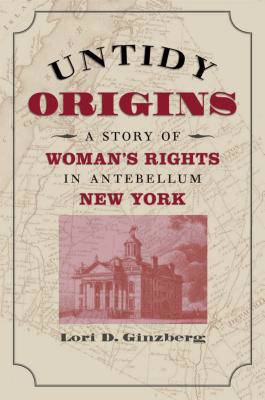
- Afhalen na 1 uur in een winkel met voorraad
- Gratis thuislevering in België vanaf € 30
- Ruim aanbod met 7 miljoen producten
- Afhalen na 1 uur in een winkel met voorraad
- Gratis thuislevering in België vanaf € 30
- Ruim aanbod met 7 miljoen producten
Zoeken
€ 57,95
+ 115 punten
Omschrijving
On a summer day in 1846 -- two years before the Seneca Falls convention that launched the movement for woman's rights in the United States -- six women in rural upstate New York sat down to write a petition to their state's constitutional convention, demanding "equal, and civil and political rights with men." Refusing to invoke the traditional language of deference, motherhood, or Christianity as they made their claim, the women even declined to defend their position, asserting that "a self evident truth is sufficiently plain without argument." Who were these women, Lori Ginzberg asks, and how might their story change the collective memory of the struggle for woman's rights?
Very few clues remain about the petitioners, but Ginzberg pieces together information from census records, deeds, wills, and newspapers to explore why, at a time when the notion of women as full citizens was declared unthinkable and considered too dangerous to discuss, six ordinary women embraced it as common sense. By weaving their radical local action into the broader narrative of antebellum intellectual life and political identity, Ginzberg brings new light to the story of woman's rights and of some women's sense of themselves as full members of the nation.
Very few clues remain about the petitioners, but Ginzberg pieces together information from census records, deeds, wills, and newspapers to explore why, at a time when the notion of women as full citizens was declared unthinkable and considered too dangerous to discuss, six ordinary women embraced it as common sense. By weaving their radical local action into the broader narrative of antebellum intellectual life and political identity, Ginzberg brings new light to the story of woman's rights and of some women's sense of themselves as full members of the nation.
Specificaties
Betrokkenen
- Auteur(s):
- Uitgeverij:
Inhoud
- Aantal bladzijden:
- 236
- Taal:
- Engels
Eigenschappen
- Productcode (EAN):
- 9780807856086
- Verschijningsdatum:
- 18/04/2005
- Uitvoering:
- Paperback
- Formaat:
- Trade paperback (VS)
- Afmetingen:
- 157 mm x 233 mm
- Gewicht:
- 344 g

Alleen bij Standaard Boekhandel
+ 115 punten op je klantenkaart van Standaard Boekhandel
Beoordelingen
We publiceren alleen reviews die voldoen aan de voorwaarden voor reviews. Bekijk onze voorwaarden voor reviews.








